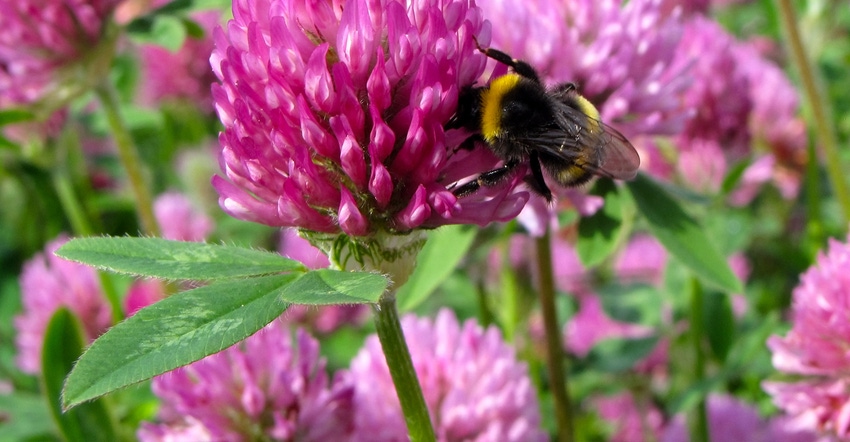September 13, 2017

The once-promising anabsine ingredient added to sugar water for bumblebees may not have a beneficial effect. Researchers at the University of Massachusetts Amherst had hoped the natural alkaloid, nicotine-like chemical found in plant nectar might be added to “nature’s medicine cabinet” to help bees rid themselves of the Crithidia bombi intestinal parasite.
Evan Palmer-Young and Lynn Adler had hoped anabsine might be a remedy for the parasite which can decrease queen bee winter survival and hamper the success of young colonies in the spring. Uninfected bees weren’t adversely affected by alkaloid-containing diets. But they found anabasine had deleterious effects on infected bees.
That’s consistent with a growing body of work suggesting negative effects of combined stressors —infection, diet quality and consumption of pesticides, notes Palmer-Young. They have consequences for bumblebees’ ability to tolerate phytochemicals.
Nicotine-like pesticides have been shown to reduce survival and impair immune function in honeybees. Nicotine sensitivity can be exacerbated when bees are also faced with immune system challenges.
The entomololgist suggests that the alkaloid’s infection-reducing properties may depend on bee colony and nutritional status, rather than on the chemical’s direct toxicity to parasites. “Anabsine concentrations tested were a hundredfold lower than those required to inhibit growth of parasite cell cultures. It doesn’t appear that direct effects of anabasine on parasite growth can explain anabasine-mediated effects on Crithidia infection.”
The only experiments where anabasine affected infection were when bees were deprived of pollen, their usual protein source. Bees require pollen to produce certain enzymes, including those that might break down compounds like anabasine, he explains. Absence of pollen in the diet may have interfered with the bees’ ability to detoxify anabasine.
Impact on the larger hive?
Alkaloids can have strong effects on insect nervous systems and behavior, concedes the researcher. A key outcome is the success of the colony, not necessarily the individual.
Even if anabasine reduces levels of infection in individual bees, it may not improve the survival of workers or the reproductive output of the colony. For example, a healthy bee may support higher numbers of parasites, so reduced infection level could conceivably reflect reduction in bee health rather than improvements.
In the UMass experiments with micro-colonies — groups of three bees reared together — feeding anabasine to bees with Crithidia infection reduced survival and weight of developing larvae. Bottom line: Anabasine may aggravate, rather than ameliorate, the stress of bees faced with disease.
Source: University of Massachusetts, Amherst
You May Also Like




